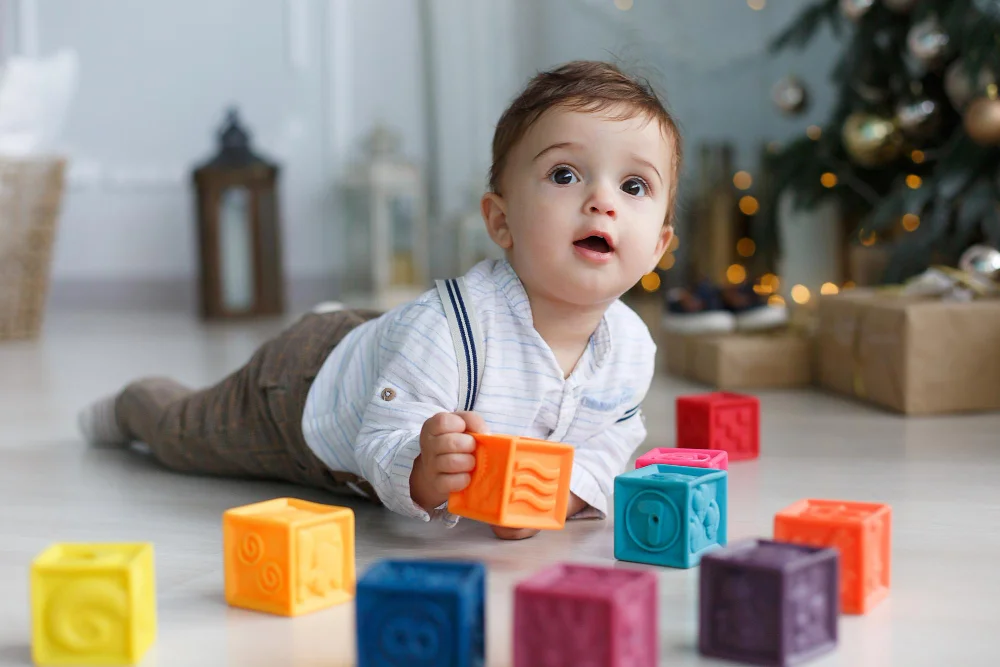Have you ever stood outside a hospital room, flowers in hand, feeling completely lost for words? You know a life-changing moment has just happened inside—your friend, colleague, or relative has welcomed a new baby into the world. But when it comes to offering the right words, you pause. Do you go with the classic “Congratulations”? Do you comment on the baby’s appearance? Or do you share something heartfelt that will genuinely resonate?
This is a surprisingly common dilemma, and it matters more than we think. Words carry immense emotional weight during such milestones. Choosing the right message is not just about etiquette—it’s about showing empathy, strengthening bonds, and making the new parents feel truly supported. As someone who’s both celebrated my cousin’s newborn last year and awkwardly fumbled through a colleague’s birth announcement years before that, I can tell you this: the words you choose will be remembered long after the balloons deflate.
Why Your Words Matter After a Baby’s Birth
The arrival of a baby is not just another social update—it’s a seismic shift in someone’s life. New parents are often navigating a whirlwind of emotions: joy, exhaustion, anxiety, pride, and sometimes even fear. Your words can:
- Acknowledge their effort and emotions – Giving birth and becoming a parent is no small feat.
- Reassure them – Especially if they’re nervous about their new role.
- Strengthen your relationship – Thoughtful words deepen your connection with them.
Dr. Vanessa Lapointe, a registered psychologist specialising in child development, notes: “When parents feel seen and celebrated, their confidence grows—and that directly benefits their child’s early development.”.
Thoughtful Things to Say When Someone Has a Baby
Not every phrase works in every situation. A generic “Congrats” might feel fine in a casual WhatsApp group, but it may fall flat in a heartfelt one-on-one. Below are several angles to consider, with examples you can adapt depending on your relationship with the new parents.
1. Classic but Heartfelt Congratulations
A tried-and-true congratulations can still feel special if you personalise it.
- “Congratulations on your beautiful baby girl! She’s lucky to have you as parents.”
- “Your family has grown by two tiny feet—wishing you endless joy in this new chapter.”
When my best friend had her son, I wrote in her card: “Welcome to the world of sleepless nights and limitless love. You’ve got this.” She told me later that she pinned it to her fridge because it felt real, not just polite.
2. Words That Focus on the Parents
Sometimes parents are overlooked in the excitement of the newborn. Acknowledging their journey makes your message more meaningful.
- “You’ve been through so much—well done, Mum! Your strength is inspiring.”
- “Congratulations, Dad. Parenthood suits you already.”
3. Practical Well-Wishes
Parenthood isn’t just emotional; it’s physically and mentally demanding. Words that show you understand that reality will stand out.
- “I hope you get some rest between cuddles—you deserve it.”
- “Sending you strength (and coffee) for the days ahead.”
4. Messages for Second-Time (or Third-Time) Parents
Parents welcoming their second or third child often hear fewer congratulations. Tailoring your words to acknowledge this makes a difference.
- “Your heart just got even bigger—congratulations on baby number two!”
- “Wishing you even more laughter and love with your growing family.”
5. Sensitive Situations
Not every birth is straightforward. If you know the family has faced complications or struggles, tread gently.
- “I’m so happy for your little one’s safe arrival. Thinking of you all.”
- “Your journey hasn’t been easy, but your love shines through.”
What Not to Say When Someone Has a Baby
Equally important is knowing what to avoid. New parents are vulnerable, and careless words can sting.
- Avoid comments on appearance: Saying “She looks just like you” might unintentionally exclude the other parent, especially in adoption or blended family contexts.
- Skip jokes about sleep deprivation unless you know the parent well—they might not find it funny at 3 a.m.
- Don’t ask about future children right away. They’ve just had one—give them time!
Backed by Research: Why Specific Words Matter
Language has measurable effects on wellbeing. According to a study published in the Journal of Family Psychology, expressions of support and empathy after childbirth can reduce stress and promote better adjustment to parenthood. Specific, personalised messages are far more impactful than generic congratulations.
When I asked my aunt (a midwife with over 25 years of experience) about this, she shared: “The new parents I see often remember exact phrases friends or family said in those first few days. Encouragement sticks. That’s why I always remind people: speak from the heart, not from a script.”
Real-World Examples of Supportive Messages
Here are some examples people shared with me when I interviewed parents for this article:
- “One friend wrote, ‘Parenthood is the hardest and best thing you’ll ever do—and I’ll be here when you need a break.’ That felt real.” – Sarah, mother of two.
- “My colleague said, ‘Don’t worry about replying—just know we’re celebrating with you.’ That took the pressure off when I was exhausted.” – James, first-time dad.
FAQs:
What is the best message to send to new parents?
A personalised congratulations works best. For example: “Congratulations on your baby boy! Wishing you love, rest, and joy in this new chapter.”
What do you say instead of just congratulations?
You can focus on the parents or the journey: “Your strength during this journey is inspiring—wishing you peace and joy with your newborn.”
How do you comfort someone who had a difficult birth?
Keep your words gentle: “I’m so glad your little one is here safely. Sending you healing and love.”
What if I don’t know the parents well?
Keep it polite but warm: “Wishing you and your family all the best as you welcome your new arrival.”
Actionable Tips: How to Make Your Words Count
- Make it personal – Mention the baby’s name if you know it, or a detail about the parents.
- Acknowledge the effort – Recognise that childbirth and early parenting take strength.
- Offer ongoing support – A line like, “Let me know when you’re ready for visitors,” goes a long way.
- Keep it genuine – If you’re unsure, write what you truly feel instead of copying a template.
Final Thoughts
What you say to someone who just had a baby doesn’t need to be poetic—it needs to be thoughtful. A warm, genuine message that acknowledges both the joy and the challenge of this life stage will always be appreciated. Whether you go with a heartfelt congratulations, a supportive promise, or a gentle reminder that you’re there for them, your words can provide comfort and joy during a transformative time.
So next time you’re faced with the joyous news of a new arrival, don’t overthink it—just speak from the heart. And if you’ve ever received a message that truly stuck with you after your child’s birth, I’d love to hear about it. Share it in the comments below—your words might inspire someone else to say just the right thing.
Read Also: What Do I Say When a Girl Asks “What’s Your Type”?




